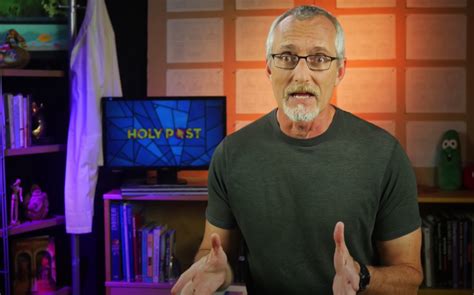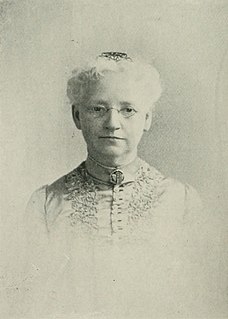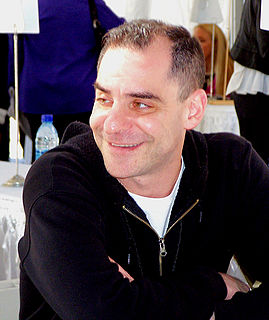Top 538 Not Forgiving Quotes & Sayings - Page 9
Explore popular Not Forgiving quotes.
Last updated on November 25, 2024.
Waiting upon the Lord gives us a priceless opportunity to discover that there are many who wait upon us. Our children wait upon us to show patience, love, and understanding toward them. Our parents wait upon us to show gratitude and compassion. Our brothers and sisters wait upon us to be tolerant, merciful, and forgiving. Our spouses wait upon us to love them as the Savior has loved each one of us.
Somewhere inside me is a merciful, forgiving person. Somewhere there is a girl who tries to understand what people are going through, who accepts that people do evil things and that desperation leads them to darker places than they ever imagined, I swear she exists, and she hurts for the repentant boy I see in front of me. But if I saw her, I wouldn't recognize her.
The reason to forgive ourselves is not because we feel like it or because we want to see ourselves as blameless but because we limit what we can receive from God when we hold on to our past. He wants to do so much more than we could ever imagine. Forgiving yourself starts with believing in God's incredible love for you and accepting His amazing grace and mercy. If God Almighty can forgive us who are we to hold on to what He has not only forgiven but forgotten
The choice to follow love through to its completion is the choice to seek completion within ourselves. The point at which we shut down on others is the point at which we shut down on life. We heal as we heal others, and we heal others by extending our perceptions past their weaknesses. Until we have seen someone’s darkness, we don’t really know who that person is. Until we have forgiven someone’s darkness, we don’t really know what love is. Forgiving others is the only way to forgive ourselves, and forgiveness is our greatest need.
Besides loving each other, we must bear with each other and pardon ? 'forgive them that trespass against us' ? in order that our heavenly Father may 'forgive us our trespasses' (Mt. 6:14). Thus, with all your soul honor and love in every man the image of God, not regarding his sins, for God alone is Holy and without sin; and see how He loves us, how much He has created and still creates for us, punishing us mercifully and forgiving us bounteously and graciously. Honor the man also, in spite of his sins, for he can always amend.
"What is normal?" really becomes the question. What is normal, and how are we fooled into thinking it's something other than what we're doing at any given time. Every family has either a drug addict or an alcoholic or some sort of dysfunction that the family is dealing with. And I think the grace of this family is that they actually could be that far out there but also be forgiving, and be really human, and be human in front of each other without much shame.
Forgive yourself for believing things about yourself that are not true. Forgive yourself for believing that you were anything other than a child of God. Then, after forgiving yourself for believing the things you were told, forgive the people who told you. Forgive them not for what they said or did. Forgive them because they did not know any better.
Every day God patiently bears with us, and every day we are tempted to become impatient with our friends, neighbors, and loved ones. And our faults and failures before God are so much more serious than the petty actions of others that tend to irritate us! God calls us to graciously bear with the weaknesses of others, tolerating them and forgiving them even as He has forgiven us.
The Jesuits were quite balked by those Indians who, being burned at the stake, suggested new modes of tortures to their tormentors. Being superior to physical suffering, it sometimes chanced that they were superior to any consolation which the missionaries could offer; and the law to do as you would be done by fell with less persuasiveness on the ears of those who, for their part, did not care how they were done by, who loved their enemies after a new fashion, and came very near freely forgiving them all they did.
Charles Williams has said of the Lord's Prayer, "No word in English carries a greater possibility of terror than the little word 'as' in that clause." What makes the 'as' so terrifying? The fact that Jesus plainly links our forgiven-ness by the Father with our forgiving-ness of fellow human beings. Jesus' next remark could not be more explicit: 'If you do not forgive men their sins, your Father will not forgive your sins.'
Not forgiving prolongs hurt and anger and leads to smoldering resentment, which will make us miserable until it kills us. Resentment destroys the perception of reality. As we try to bend the world to accommodate our resentment, fear, and selfishness, we become less accurate in understanding the world. This eventually destroys our ability to cope successfully with life.
We must abandon completely the notion of blaming the past for any kind of situation we're in and reverse our thinking and see that the past always flows back from the present. That now is the creative point of life. So you see it's like the idea of forgiving somebody, you change the meaning of the past by doing that...Also, watch the flow of music. The melody as its expressed is changed by notes that come later. Just as the meaning of a sentence...you wait till later to find out what the sentence means...The present is always changing the past.
I looked back at the previous 10 years and realized I had spent 10 years trying to convince kids to behave Christianly without actually teaching them Christianity. And that was a pretty serious conviction. You can say, 'Hey kids, be more forgiving because the Bible says so,' or, 'Hey kids, be more kind because the Bible says so!' But that isn't Christianity, it's morality.
To forgive the incessant provocations of daily life - to keep on forgiving the bossy mother-in-law, the bullying husband, the nagging wife, the selfish daughter, the deceitful son - how can we do it? Only, I think, by remembering where we stand, by meaning our words when we say in our prayers each night, “Forgive our trespasses as we forgive those who trespass against us.” We are offered forgiveness on no other terms. To refuse it is to refuse God’s mercy for ourselves. There is no hint of exceptions and God means what he says.
We have different expectations for different groups of people. We tend to modulate the degree with which we're forgiving or punitive depending on how well we know folks, or how much we consider them peers, or how much social capital we've invested in them. That has to do with race, class, gender, and socioeconomic status. We have a tendency to bend over backwards to forgive folks we think of as part of "the us." The question of who we define as "the us" is a lot of what constitutes how we punish who we punish.
Chastity, non-injury, forgiving even the greatest enemy, truth, faith in the Lord, these are all different Vrittis. Be not afraid if you are not perfect in all of these; work, they will come. He who has given up all attachment, all fear, and all anger, he whose whole soul has gone unto the Lord, he who has taken refuge in the Lord, whose heart has become purified, with whatsoever desire he comes to the Lord, He will grant that to him. Therefore worship Him through knowledge, love, or renunciation.
Though not a remarkably precocious child in other respects, she seemed to have very clear and correct views on almost every subject connected with her duty to God and her neighbor; was very truthful both in word and deed, very strict in her observance of the Sabbath - though the rest of the family were by no means particular in that respect - very diligent in her studies, respectful to superiors, and kind to inferiors and equals; and she was gentle, sweet-tempered, patient, and forgiving to a remarkable degree.
Shaytan will tell you that you’re not worthy, so give up. But his traps are based on lies. When was any of it because of *your* worth? It was all because of His mercy, His generosity, His love of giving, and forgiving. And those qualities don’t change because you’re messing up. Just seek them. Call Him by His mercy, not by your deeds.
The darkness of racial injustice will be dispelled only by the light of forgiving love. For more that three centuries American Negroes have been frustrated by day and bewilderment by night by unbearable injustice, and burdened with the ugly weight of discrimination. Forced to live with these shameful conditions, we are tempted to become bitter and retaliate with a corresponding hate. But if this happens, the new order we seek will be little more than a duplicate of the old order. We must in strength and humility meet hate with love.
Nothing stirs God’s heart more than a humble heart and a merciful spirit. God responds to mercy, because it is through compassion that we fully come to know Him. This is the defining quality of a true follower of Christ. We are never closer to the heart of God than when we are forgiving someone. And we are never farther from it than when we are holding a grudge.
Prayer is the converse of the soul with God. Therein we manifest or express to Him our reverence, and love for His divine perfection, our gratitude for all His mercies, our penitence for our sins, our hope in His forgiving love, our submission to His authority, our confidence in His care, our desires for His favour, and for the providential and spiritual blessings needed for ourselves and others.
We frail humans are at one time capable of the greatest good and, at the same time, capable of the greatest evil. Change will only come about when each of us takes up the daily struggle ourselves to be more forgiving, compassionate, loving, and above all joyful in the knowledge that, by some miracle of grace, we can change as those around us can change too.
None of us wants to admit that we hate someone... When we deny our hate we detour around the crisis of forgiveness. We suppress our spite, make adjustments, and make believe we are too good to be hateful. But the truth is that we do not dare to risk admitting the hate we feel because we do not dare to risk forgiving the person we hate.
We know how to be doctors, nurses, lawyers. We know how to be tweeters. We know how to be everything. But how do you just be people? How do you be present with one another? How do you be honest with one another? How do you be compassionate towards one another, forgiving towards one another? We know what to do. We don't know what to be, how to be.
Forgiving is an affair strictly between a victim and a victimizer. Everyone else should step aside...The worst wounds I ever felt were the ones people gave to my children. Wrong my kids, you wrong me. And my hurt qualifies me to forgive you. But only for the pain you caused me when you wounded them. My children alone are qualified to forgive you for what you did to them.
At that point, Noriko finally breaks down and begins to cry sobbing into her hands as the floodgates open - this young woman who has suffered in silence for so long, this good woman who refuse to believe she's good, for only the good doubt their own goodness, which is what makes them good in the first place. The bad know they are good, but the good know nothing. They spend their lives forgiving others, but they can't forgive themselves.
People sometimes focus on the red button hot topic issues and I'm, like, you know, who cares about priestly celibacy? I'm thinking about how am I forgiving my enemies? How am I turning the other cheek? How am I loving my neighbor as myself? To me that's 10,000 times more difficult than to say should priests be married or not be married? I'm, like, I think we're wasting all out energies on the wrong thing. Let's work on the most difficult stuff.
I'm working on forgiving myself for some not-so-hot choices I've made in my life. I neglected two people I loved dearly. They are both dead now and I obviously can do nothing to repair or change that, and I grieve every day for those choices. That grief can be paralyzing, but it has made me understand the pain of holding on to unfinished business. In my case, I had put work first. I will never do that again. Having made that choice, I find the grief in my heart finally abating. Now I teach the need to forgive yourself and others relentlessly.
The reason for forgiving your enemies is not for their benefit but for your own benefit. Holding grudges against other people doesn’t hurt them; doesn’t even bother them much - in fact, even pleases them if they are still mad at you. It is not in your enlightened self-interest to hold grudges, regardless of whether it bothers the person you hate or not.
Forgiving presupposes remembering. And it creates a forgetting not in the natural way we forget yesterday's weather, but in the way of the great "in spite of" that says: I forget although I remember. Without this kind of forgetting no human relationship can endure healthily. I don't refer to a solemn act of asking for and offering forgiveness. Such rituals as sometimes occur between parents and children, or friends, or man and wife, are often acts of moral arrogance on the one part and enforced humiliation on the other. But I speak of the lasting willingness to accept him who has hurt us.
If your fundamental is a man dying on the cross for his enemies, if the very heart of your self-image and your religion is a man praying for his enemies as he died for them, sacrificing for them, loving them - if that sinks into your heart of hearts, it's going to produce the kind of life that the early Christians produced. The most inclusive possible life out of the most exclusive possible claim - and that is this is the truth. But what is the truth? The truth is a God become weak, loving and dying for the people who opposed him, dying forgiving them.
If we say that monsters [people who do terrible evil] are beyond forgiving, we give them a power they should never have...they are given the power to keep their evil alive in the hearts of those who suffered most. We give them power to condemn their victims to live forever with the hurting memory of their painful pasts. We give the monsters the last word.
Forgiving and being reconciled to our enemies or our loved ones are not about pretending that things are other than they are. It is not about patting one another on the back and turning a blind eye to the wrong. True reconciliation exposes the awfulness, the abuse, the hurt, the truth. It could even sometimes make things worse. It is a risky undertaking but in the end it is worthwhile, because in the end only an honest confrontation with reality can bring real healing. Superficial reconciliation can bring only superficial healing.
Love is the ability to live your life with an empowered heart without attachment to the outcome, the ability within yourself to distinguish within yourself between love and fear and choose love regardless of what is going on inside yourself or outside. This is self-mastery or authentic power...that means you become clear, forgiving, humble and loving... you are grounded in harmony, cooperating, sharing and reverence for life.
Herodotus is not more indisputably the father of history than is Sir Boyle Roche the father of Bulls. No doubt there were makers of bulls before his day, even as brave men lived before Agamemnon; but they are not remembered, and if their bulls have survived them they are credited to Sir Boyle by a posterity generously forgiving and forgetful of his famous indictment.
Repentance is being sorry enough to quit your sin. You will never know the forgiving mercy of God while you are still wedded to your sins. Repentance is the soul's divorce from sin, but it will always be joined to faithRepentance that is not joined to faith is a legalistic repentanceProfessed faith that is not joined to repentance is a spurious faith, for true faith is faith in Christ to save me not in but from my sin. Repentance and faith are inseparable, and 'unless you repent you will all likewise perish' (Luke 13:3).
Know that truth, forgiveness, and love can heal the world. Imagine if all of us could be truthful with ourselves, start forgiving everyone, and start loving everyone. We would no longer be selfish, gossiping would be over, and we would no longer judge one another. The world would become a place where all of us live in love.
Is there some lesson on how to be friends? I think what it means is that central to living a life that is good is a life that's forgiving. We're creatures of contact regardless of whether we kiss or we wound. Still, we must come together. Though it may spell destruction, we still ask for more-- since it beats staying dry but so lonely on shore. So we make ourselves open while knowing full well it's essentially saying "please, come pierce my shell.
And what I thought, every time I thought about my father, every time his name came up, was quite simply: I WANT TO KILL YOU. I wanted to be more mature, more reasonable, I wanted to have a big, fat, forgiving heart that could contain all this rage and still find room for kind, beneficent love, but I didn't have it in me. I just didn't.
You know, Sage, Jesus didn't tell us to forgive everyone. He said turn the other cheek, but only if you the one who was hit. Even the Lord's Prayer says it loud and clear: Forgive us our trespasses, as we forgive those who trespass against us. Not others. What Jesus challenges us to do is to let go of the wrong done to you personally, not the wrong done to someone else. But most Christians incorrectly assume that this means that being a good christian means forgiving all sins, and the sinners.
I have concluded through careful empirical analysis and much thought that somebody is looking out for me, keeping track of what I think about things, forgiving me when I do less than I ought. Giving me strength to shoot for more than I think I’m capable of. I believe they know everything that I do and think, and they still love me, and I’ve concluded, after careful consideration, that this person keeping score is me.
When you remain angry with another person, you give away your emotional control to that person each time you think of him or here. You allow him or her to control your emotions at long distance. By not forgiving, you allow that person to run your emotional life, exactly as if he or she were right there with you and the situation was occurring all over again.
Look at how successful the domestic workers movement has been. But it's different when it's your husband hiring someone. Domestic workers quite literally say, "You need to get your house in order. You can't join this movement unless you look at yourself." And they're very forgiving, amnesty for everyone. "You haven't been paying into your nanny's unemployment insurance? That's cool, we'll teach you how to get right and go from there." What would the parallel be around sex workers? I don't know if there can be one.
We are all prone to brood on the evil done us. That brooding becomes as a gnawing and destructive canker. Is there a virtue more in need of application in our time than the virtue of forgiving and forgetting? There are those who would look upon this as a sign of weakness. Is it? I submit that it takes neither strength nor intelligence to brood in anger over wrongs suffered, to go through life with a spirit of vindictiveness, to dissipate one’s abilities in planning retribution. There is no peace in the nursing of a grudge. There is no happiness in living for the day when you can ‘get even.
We need to be kinder with one another, more gentle and forgiving. We need to be slower to anger and more prompt to help. We need to extend the hand of friendship and resist the hand of retribution. In short, we need to love one another with the pure love of Christ, with genuine charity and compassion and, if necessary, shared suffering, for that is the way God loves us.
The narratives we create in order to justify our actions and choices become in so many ways who we are. They are the things we say back to ourselves to explain our complicated lives. Perhaps the reason you've not yet been able to forgive yourself is that you're still invested in your self-loathing. Perhaps not forgiving yourself is the flip side of your stealing-this-now cycle. Would you be a better or worse person if you forgave yourself for the bad things you did? If you perpetually condemn yourself for being a liar and a thief, does that make you good?
The kind of love my mum talks about is full of worry and work and forgiving people and putting up with things and stuff like that. It's not a lot of fun, that's for sure. If that really is love, the kind my mum talks about, then nobody can ever know if they love somebody, can they? It seems like what she's saying is, if you're pretty sure you love somebody, the way I was sure in those few weeks, then you can't love them, because that isn't what love is. Trying to understand what she means by love would do your head in.
Do not be critics, you people, I beg you. I was a critic and I wish I could take it all back because it came from a smelly and ignorant place in me, and spoke with a voice that was all rage and envy. Do not dismiss a book until you have written one, and do not dismiss a movie until you have made one, and do not dismiss a person until you have met them. It is a f@*$%load of work to be open-minded and generous and understanding and forgiving and accepting, but Christ, that is what matters. What matters is saying yes.
Gratitude is a mindful awareness of the benefits of life. It's the greatest of virtues. Studies have linked the emotion with a variety of positive effects. Grateful people tend to be more empathetic and forgiving of others. People who keep a gratitude journal are more likely to have a positive outlook on life. Grateful individuals demonstrate less envy, materialism, and self-centeredness. Gratitude improves self-esteem and enhances relationships, quality of sleep, and longevity.
...here also forgiving does not mean excusing. Many people seem to think it does. They think that if you ask them to forgive someone who has cheated or bullied them you are trying to make out that there was really no cheating or bullying. But if that were so, there would be nothing to forgive. (This doesn't mean that you must necessarily believe his next promise. It does mean that you must make every effort to kill every taste of resentment in your own heart - every wish to humiliate or hurt him or to pay him out.)
I worry about fast forgivers. They tend to forgive quickly in order to avoid their pain. Or they forgive fast in order to get an advantage over the people they forgive. And their instant forgiving only makes things worse... People who have been wronged badly and wounded deeply should give themselves time and space before they forgive... There is a right moment to forgive. We cannot predict it in advance; we can only get ourselves ready for it when it arrives... Don't do it quickly, but don't wait too long.
RAW is very forgiving. I was photographing a farm woman in Ecuador cooking over a small fire and my fill flash didn't go off a few times. I was about to delete the RAW files but decided to play with the curves first because I like the composition. It turned out that the image, although underexposed by two stops, was better than the fill-flashed images because the fire was the only source of illumination and it looked more real.
Time is an equal opportunity employer. Each human being has exactly the same number of hours and minutes every day. Rich people can't buy more hours. Scientists can't invent new minutes. And you can't save time to spend it on another day. Even so, time is amazingly fair and forgiving. No matter how much time you've wasted in the past, you still have an entire tomorrow.
But it is possible, it is possible: the old grief, by a great mystery of human life, gradually passes into quiet, tender joy; instead of young, ebullient blood comes a mild, serene old age: I bless the sun's rising each day and my heart sings to it as before, but now I love its setting even more, its long slanting rays, and with them quiet, mild, tender memories, dear images from the whole of a long and blessed life--and over all is God's truth, moving, reconciling, all-forgiving!
Now when I hear about someone's illness, no matter what dire their predicament seems to be, I know that if they're willing to do the mental work of releasing and forgiving, almost anything can be healed. The word incurable, which is so frightening to so many people, really only means that the particular condition cannot be cured by 'outer' methods and that we must go within to effect the healing. The condition came from nothing and will go back to nothing.
Forgive a wife-slammer if you can. But you don't have to live with him. Forgive a husband who is abusing your children if you can. But only after you kick him out of the house. And if you can't get him out, get help. It's available. In the meantime, don't let him near the kids, and don't let anyone tell you that if you forgive him it means you have to stay with him. [There's an important difference between forgiving a person and tolerating their bad behavior.]
I always thought that digital first was a simplistic notion, and I am not even sure quite what it means. It should be stories first. Let's take the Paris story: the New York Times covered it all day, we held nothing back. Everything we learned, we published online. Then, when you approach your print deadline, you have to do two things. You have to polish those stories that are online because print is less forgiving of mistakes. Secondly, in an ideal world, you pick one thing that will feel fresh and compelling to people in the morning when they pick up the print paper.



















































